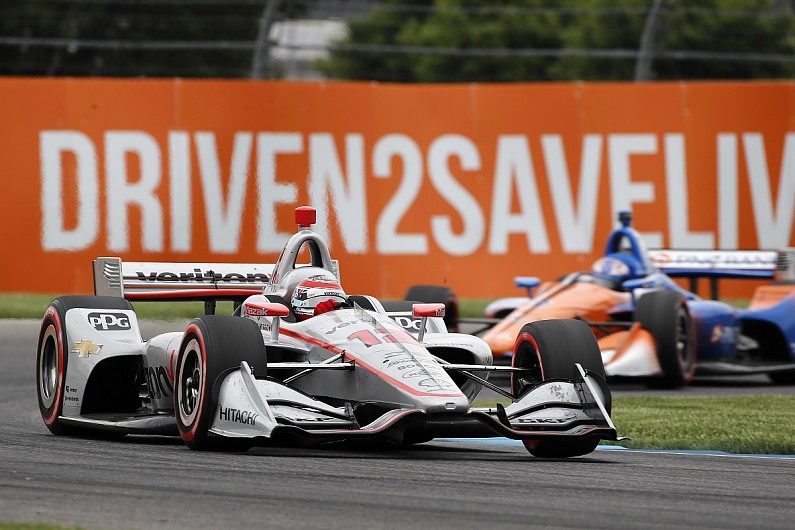Get unlimited access
You have only 5 articles remaining to view this month.
Indianapolis 500 winner and Penske driver Will Power says he needs IndyCar points leader Scott Dixon to have a downturn in form if he is to win the championship.
Power’s 2018 season has been blighted by misfortune, as he crashed out at both Phoenix and Texas, and spun into the pitwall in the wet at Barber.
He also lost significant ground in the title battle at Road America when his engine expired almost instantly at the start of the race.
The 2014 champion is now fourth in the points by virtue of his two victories, with the Indy 500 success rewarded with double-points, and he trails Dixon by 87 points with just four races remaining.
Power admits that even with the double-points Sonoma season finale the gap is insurmountable unless Dixon endures a run of bad form.
“Obviously, Newgarden and Rossi [third and second in the points] are very reachable,” said Power. “But Dixon, we need him to have a bad run, simple as that.
“That’s how we’re going to catch him. He’s had a very good run all year, very smooth, very consistent. We just need him to have a bad day basically.”
Power expects that the double-points on offer at Sonoma will benefit him more than the drivers ahead and feels he may have to take a risky gamble to overhaul Dixon.
“Yes, [double points] absolutely changes your strategy,” said Power. “Double points help you if you’re as far back as I am.
“You obviously would be very aggressive with your strategy depending on how you qualify.
“You’d be going there to try to win the race. Maybe you take a big risk strategy-wise to do that.
“Even on the track as far as your race, you’d be quite aggressive.
“Yeah, the double points situation is great for my position”.
Indy test follows 2018 criticism
Power and Dixon both tested at the Indianapolis Motor Speedway on Tuesday in a test for the series’ sole tyre supplier Firestone, which helped to inform IndyCar’s direction for next year’s Indy 500 after criticism of the 2018 edition.
The 2018 Indy 500 was run largely with car sin single-file and did not feature the draft pack racing that characterised the last generation of aerokit.
“We did some CFD [computational fluid dynamics] and some wind tunnel stuff that we thought would address [the criticism],” said Bill Pappas, IndyCar’s vice president of competition and engineering.
“We put it to the test here and are getting feedback from both drivers now.
“We’re trying to come up with some solutions that don’t force teams to go out and scrap a whole lot of parts. From our perspective, it wasn’t a horrible race.
“It’s just fine-tuning to give the guys a little more consistency in traffic.
“The whole purpose is just to see if there are ways to improve upon the race that we had this year.”
